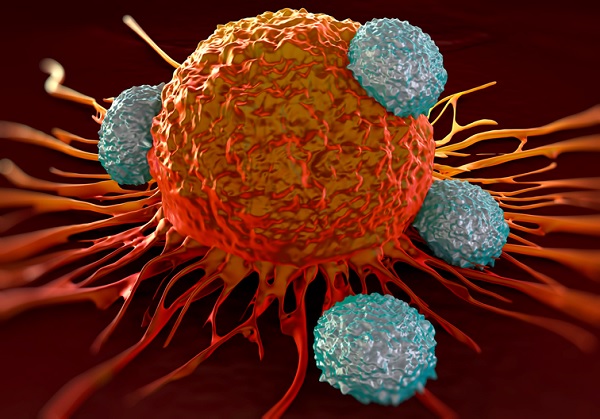Kite outlines vision for next gen cancer killing cells

The dust has settled on Novartis’ shock decision to cut back its R&D into cancer-killing cells – and now one of the leaders in the field has outlined its vision for a new generation of these much-anticipated therapies.
Kite Pharma is one of several biotechs that are attempting to develop these cancer immunotherapies, where T-cells are modified to detect and attack cancer.
Cancers survive in the body by producing a series of defences allowing them to hide from the immune system. These new therapies modify a key component of the immune system - T-cells - directly so that they can detect and attack the cancer.
Kite is developing therapies known as chimeric antigen receptor (CAR) and T-cell receptor (TCR) therapies, and like rival Juno, has strong financial backing from big pharma.
In 2015, Kite began a collaboration with Amgen in CAR-T that could be worth more than half a billion dollars, while Juno’s 10-year collaboration with Celgene could be worth $1 billion.
At an investor day, Kite unveiled a strategy to develop a new generation of CAR-T therapies, after announcing last month that it was likely to be the first company to file one of these treatments with the US regulator.
The first filing for KTE-C19 CAR-T therapy is likely to be next year in non-Hodgkin lymphoma, but Kite also plans to expand its use into six other indications in B-cell malignancies. It is already stepping up manufacturing in anticipation of approval by the US Food and Drug Administration.
Further down the pipeline, Kite said that this year it plans to apply in the US to begin clinical trials of KITE-718, a TCR therapy for non-small cell lung cancer and bladder cancer. This is the first product candidate from the Amgen collaboration.
Next year, it plans to apply to begin trials of KITE-585 in multiple myeloma, followed by a trial application for KITE-439 in cervical and head and neck cancer.
Kite is also planning a “2.0” generation of T-cells, where T-cell expansion can be regulated, which are themselves less visible to the immune system, and can be produced in bulk from a renewable cell source, rather than harvested from patients.
The six new indications planned for KTE-C19 are mantle cell lymphoma, adult acute lymphoblastic leukaemia (ALL), paediatric ALL, indolent non-Hodgkin’s lymphoma, diffuse B-cell lymphoma second line and chronic lymphocytic leukaemia.












